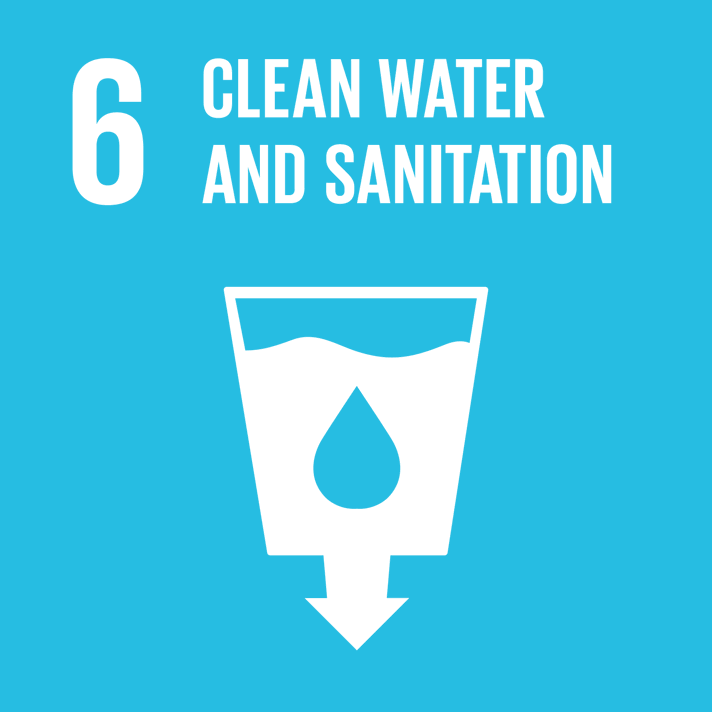Goal 6: Clean water and sanitation
Published
Goal 6 is to ensure availability and sustainable management of water and sanitation for all.

Water is essential for all life on Earth, and therefore key to sustainable development. A very large proportion of those living in poverty lack access to clean water and basic sanitation. Untreated industrial and household wastewater leads to polluted water and creates unhealthy environments that particularly affect people living in poverty.
Water is also essential for the world's production of food and energy, and shortage of water can therefore be a cause of conflict. Integrated and transparent water management, both within and between states, is necessary for long-term sustainable water use. The effects of climate change are clearly evident at an early stage through the change in access to water. Restoring the water storage capacity of ecosystems is a necessary adaptation.
The lack of a reliable, nearby water source and safe, private toilets has profound effects on the lives of millions of people around the world. The consequences are devastating and hit women and girls the hardest, affecting their health, safety, education, income opportunities and family relations. Women and girls are often responsible for the family's water supply, which leads to women losing income opportunities and girls missing school days. This affects their political, economic and social opportunities.Access to clean water and toilets at school is central to girls remaining at school, particularly when they reach puberty. Many women and girls risk their personal safety when they are forced to go to isolated areas to relive themselves or fetch water.
Targets
6.1 By 2030, achieve universal and equitable access to safe and affordable drinking water for all
6.2 By 2030, achieve access to adequate and equitable sanitation and hygiene for all and end open defecation, paying special attention to the needs of women and girls and those in vulnerable situations
6.3 By 2030, improve water quality by reducing pollution, eliminating dumping and minimizing release of hazardous chemicals and materials, halving the proportion of untreated wastewater and substantially increasing recycling and safe reuse globally
6.4 By 2030, substantially increase water-use efficiency across all sectors and ensure sustainable withdrawals and supply of freshwater to address water scarcity and substantially reduce the number of people suffering from water scarcity
6.5 By 2030, implement integrated water resources management at all levels, including through transboundary cooperation as appropriate
6.6 By 2020, protect and restore water-related ecosystems, including mountains, forests, wetlands, rivers, aquifers and lakes
6.a By 2030, expand international cooperation and capacity-building support to developing countries in water-and sanitation-related activities and programmes, including water harvesting, desalination, water efficiency, wastewater treatment, recycling and reuse technologies
6.b Support and strengthen the participation of local communities in improving water and sanitation management

 X
X